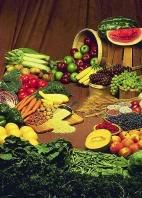High Blood Pressure? Natural Alternatives Can Help! was written by Roger Jirves from RogerJirves.com High blood pressure (hypertension) is a dangerous condition that can lead= to stroke, enlarged heart, congestive heart failure, kidney and eye damage, atherosclerosis hardening of the arteries, and premature death.
High blood pressure (hypertension) is a dangerous condition that can lead= to stroke, enlarged heart, congestive heart failure, kidney and eye damage, atherosclerosis hardening of the arteries, and premature death.
According to a recent report released in The New England Journal of Medicine of 16,000 adults surveyed over the age of 24, nearly 30 percent had blood pressure of at least 140/90 and more than one-third of them were unaware of their condition.
Blood pressure refers to the force of the bloodstream against the walls of the arteries as they deliver blood from the heart to the rest of the body. Normal, healthy blood pressure ranges from about 110/80 to as high as 140/90. The higher number refers to systolic pressure, which is the hearts contractions. The second number, the diastolic pressure, measures the rests between heartbeats. Here are the categories to consider when evaluating blood pressure:
Although there are still questions about the roots of essential hypertension, many researchers name two culprits: The typical American diet and lifestyle factors. Following are 9 major factors that can contribute to this potentially deadly condition:
Anti-Hypertensive Diet Guidelines
The following recommendations can help you keep your blood pressure at healthier levels:
Essential Nutrient IntakeWhat you eat has a powerful influence on your blood pressure as well as almost every other aspect of your health.
For most people, the sodium/potassium ratio is more significant than sodium alone. We should be consuming about five times more potassium than sodium (5:1), but the typical American diet includes half as much potassiumas sodium (1:2).
By eating more POTASSIUM-rich foods, you can reverse the ratio and promote healthy blood pressure. Foods such as bananas, oranges, tangerines, beans, dried peas, and potatoes provide a wealth of natural potassium.
MAGNESIUM is another vital nutrient for blood pressure. It is believed that magnesium activates the bodys cellular membrane pump, which pumps sodium out and potassium into the cells. Some clinical trials have shown that magnesium supplementation reduces blood pressure. Magnesium- rich foods include nuts (especially almonds, cashews, and pecans), rice, bananas, potatoes, wheat germ, kidney and lima beans, peas, soy products, molasses, oat, bran, and fish.
CALCIUM is important. People with high blood pressure are advised to increase Calcium intake and to eat more calcium-rich foods such as nuts, salmon, sardines, low-fat dairy foods, watercress, kale, broccoli, turnip greens, collard greens, and mustard greens.
Here is a list of other nutritional supplements that can help prevent high blood pressure:
Summary . . . The consequences of untreated high blood pressure are too serious to go untreated. By making smart choices about the foods you eat, the intake of beneficial nutritional factors and your exercise regimen, you can help control your own blood pressure.
Remember to subscribe my full feed to get latest posts
High Blood Pressure? Natural Alternatives Can Help!
What Causes High Blood Pressure?
Subscribe to:
Post Comments (Atom)
No comments:
Post a Comment